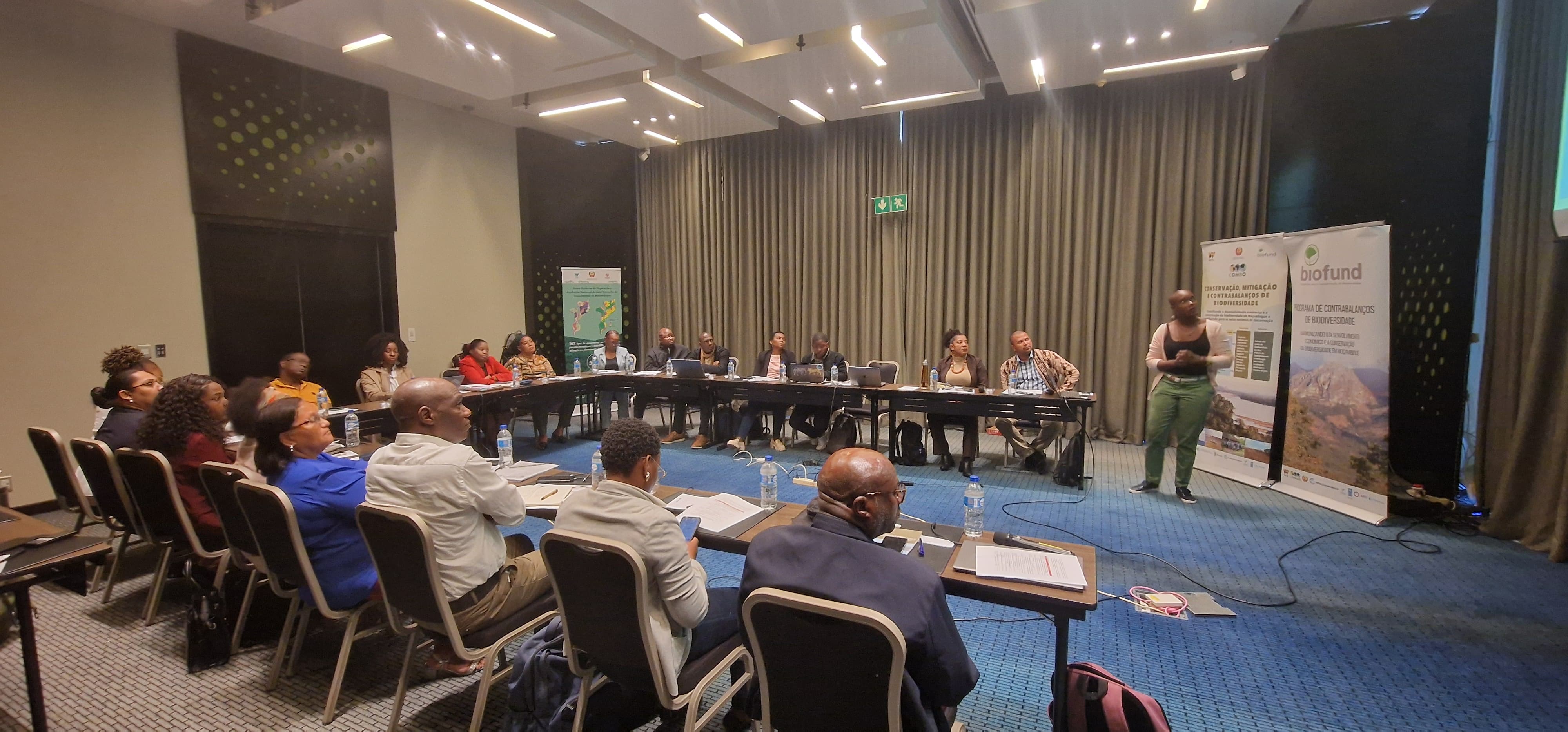The Technical-Scientific Unit (UTC) to Support Biodiversity Offsets has benefited from training on metrics for measuring losses and gains in biodiversity (species and ecosystems). The event took place on April 17 in Maputo and was attended by 25 people, including members from the different institutions that make up the UTC, technicians from the Biodiversity Offset Assessment and Monitoring Division (RAACB) of the National Directorate for the Environment (DINAB) and trainers.
The training was promoted by the COMBO+ Program, a partnership between the Ministry of Agriculture, Environment and Fisheries (MAAP), the Wildlife Conservation Society (WCS-Mozambique) and the Foundation for the Conservation of Biodiversity (BIOFUND), and lectured by Dr. Célia Macamo, a biodiversity specialist from the Eduardo Mondlane University, with solid experience in developing metrics, particularly for mangroves and seagrass. The training was based on the “Guidance Note for the development of suitable metrics for use in loss and gain calculations of ecosystems and/or species” by the COMBO+ Program International team, with the recently developed “Seagrass Ecosystem Metrics” as a case study.
Members of the Scientific Technical Unit who took part in the training course
Considering that Mozambique is preparing to implement the first Biodiversity Offset Management Plans (BOMPs), it was crucial to strengthen the capacity of the members of the newly created UTC in terms of metrics for measuring biodiversity losses resulting from development projects and gains resulting from biodiversity offset projects in Mozambique.
The UTC is a multi-sectoral formal group, made up of representatives from government institutions, the private sector, academia and civil society organizations, whose mission is to strategically support the Environmental Impact Assessment Authority in the design, assessment and monitoring of BOMPs.
The COMBO+ Program is currently funded by the Agence Française de Developpement (AFD) and the Fonds Français pour l'Environnement Mondial (FFEM). In Mozambique, COMBO+ is also currently funded by the Government of Sweden through the Biodiversity Conservation Program.

Célia Macamo, university lecturer at Eduardo Mondlane University , explaining the components of biodiversity.